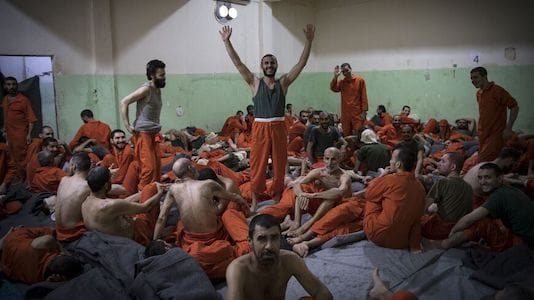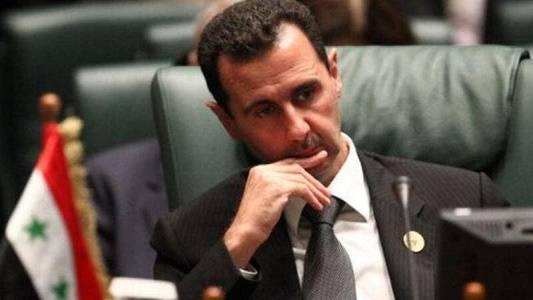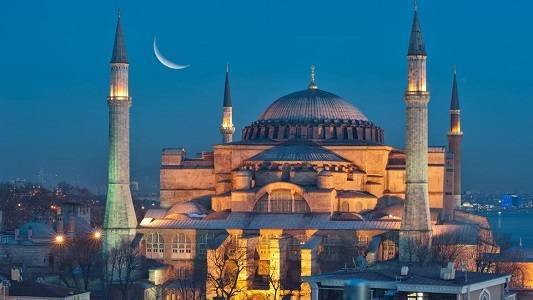 Even though, during the past year, developments in Syria have entered a stabilization trajectory, the country remains fragmented and a “playground” where different regional and national interests collide. The Assad regime has managed to maintain and extend its control in most of the Syrian territories around Damascus and in the south. However, there are still challenges from opposition forces in the northwest, the Kurdish-controlled areas in the northeast and a re-emerging ISIS threat looming both from previously ISIS-controlled enclaves as well as prisons and camps.[1] At the same time, lines are blurred in regional alliances, such as the one between Russia and Iran, as the players attempt to consolidate their power at each other’s expense. What will 2022 look like for Syria and what are the imminent threats for the country’s sovereignty?
Even though, during the past year, developments in Syria have entered a stabilization trajectory, the country remains fragmented and a “playground” where different regional and national interests collide. The Assad regime has managed to maintain and extend its control in most of the Syrian territories around Damascus and in the south. However, there are still challenges from opposition forces in the northwest, the Kurdish-controlled areas in the northeast and a re-emerging ISIS threat looming both from previously ISIS-controlled enclaves as well as prisons and camps.[1] At the same time, lines are blurred in regional alliances, such as the one between Russia and Iran, as the players attempt to consolidate their power at each other’s expense. What will 2022 look like for Syria and what are the imminent threats for the country’s sovereignty?
The edited volume aptly titled Erdoğan’s ‘New’ Turkey endeavours and succeeds in examining thoroughly the multiple dimensions and ramifications of the July 2016 failed coup attempt in Turkey. Edited by Nikos Christofis, this volume boasts eleven chapters from twelve contributors ranging from Europe to Turkey, with the many aspects related to the coordination process acting as testament to its importance and symbolism in cross-country and cross-academia collaboration. Hence, it comes as no surprise that the volume’s genesis originates from the 2017 international conference co-organized by the Netherlands Institute in Athens and the editor under the title Turkey in Transition (?): Before and After the Attempted Coup.
 Despite the latest ceasefire in Idlib, tensions are once again rising across Syria. In the northwest, the high mobility in Idlib indicates that renewed fighting is rather a matter of timing, while in the south and east, escalating assassination campaigns in Daraa and Deir ez-Zor generate new dangerous dynamics. In central and eastern Syria, the resurgence of ISIS cells further exposes a severe security vacuum that opens way for intensive influence competition between the Kurds and the regime. Last but not least, the unprecedented economic crisis that face the country threatens to derail even the minimum stability enjoyed in Syria at the moment.
Despite the latest ceasefire in Idlib, tensions are once again rising across Syria. In the northwest, the high mobility in Idlib indicates that renewed fighting is rather a matter of timing, while in the south and east, escalating assassination campaigns in Daraa and Deir ez-Zor generate new dangerous dynamics. In central and eastern Syria, the resurgence of ISIS cells further exposes a severe security vacuum that opens way for intensive influence competition between the Kurds and the regime. Last but not least, the unprecedented economic crisis that face the country threatens to derail even the minimum stability enjoyed in Syria at the moment.
 The decision of the Turkish Constitutional Court to revoke the almost 85-year-old museum status of Hagia Sophia and allow its conversion to a mosque did not come as a bolt out of the blue. Instead, it is the by-product of a decades – old battle concerning the republic’s oppressed Islamic soul and the orientations of her foreign policy vis-à-vis the Arab and the Muslim world.
The decision of the Turkish Constitutional Court to revoke the almost 85-year-old museum status of Hagia Sophia and allow its conversion to a mosque did not come as a bolt out of the blue. Instead, it is the by-product of a decades – old battle concerning the republic’s oppressed Islamic soul and the orientations of her foreign policy vis-à-vis the Arab and the Muslim world.
 Due to the Coronavirus pandemic many countries have adopted several measures to stop the spread of the disease. For some of these measures reservations are expressed regarding their conformity with the required respect for human rights. The concern is especially due to the fear of the measures been enforced in discriminatory ways against certain segments of the population, or that abuse of powers could take place. The very battle to thwart the spread of SARS-CoV-2 could serve as pretext for authoritarian governments to exercise more control over citizens. What is particularly worrying is that the restrictions and surveillance could survive even the end of the pandemic, justified as a way to make sure it will not return, or prevent a new pandemic from taking place. The Council of Europe[1], the UN High Commissioner for Human Rights[2], as well as generally human rights organisations[3] have raised awareness, so that civil liberties, human dignity, human rights and even human lives are not put in danger, not now, nor in the period after this acute phase of the pandemic. To show the many challenges COVID-19 poses for those concerned for the protection of human rights, this article will highlight the example of Turkey.
Due to the Coronavirus pandemic many countries have adopted several measures to stop the spread of the disease. For some of these measures reservations are expressed regarding their conformity with the required respect for human rights. The concern is especially due to the fear of the measures been enforced in discriminatory ways against certain segments of the population, or that abuse of powers could take place. The very battle to thwart the spread of SARS-CoV-2 could serve as pretext for authoritarian governments to exercise more control over citizens. What is particularly worrying is that the restrictions and surveillance could survive even the end of the pandemic, justified as a way to make sure it will not return, or prevent a new pandemic from taking place. The Council of Europe[1], the UN High Commissioner for Human Rights[2], as well as generally human rights organisations[3] have raised awareness, so that civil liberties, human dignity, human rights and even human lives are not put in danger, not now, nor in the period after this acute phase of the pandemic. To show the many challenges COVID-19 poses for those concerned for the protection of human rights, this article will highlight the example of Turkey.
 As the Syrian civil war nears its end, the regime’s imminent victory against the remaining opposition forces in Idlib tends to be overshadowed by several emerging issues that threaten to trigger a new circle of instability. In the meantime, irrespective of any outcome in the north, another ‘war’ still rages and will continue to rage in the country. The one between Iran, which struggles to recover from the assassination of General Qasem Soleimani, and Israel, which meticulously tries to fend off the former’s entrenchment in the country.
As the Syrian civil war nears its end, the regime’s imminent victory against the remaining opposition forces in Idlib tends to be overshadowed by several emerging issues that threaten to trigger a new circle of instability. In the meantime, irrespective of any outcome in the north, another ‘war’ still rages and will continue to rage in the country. The one between Iran, which struggles to recover from the assassination of General Qasem Soleimani, and Israel, which meticulously tries to fend off the former’s entrenchment in the country.
Το Κέντρο Μεσογειακών,Μεσανατολικών και Ισλαμικών Σπουδών φιλοξενεί πληθώρα διαφορετικών απόψεων στα πλαίσια του ελεύθερου ακαδημαϊκού διαλόγου. Οι απόψεις αυτές δεν αντανακλούν υποχρεωτικά τις απόψεις του Κέντρου. Η χρήση και αναπαραγωγή οπτικοακουστικού υλικού για τις ανάγκες της ιστοσελίδας του ΚΕΜΜΙΣ γίνεται για ενημερωτικούς, ακαδημαϊκούς και μη κερδοσκοπικούς σκοπούς κατά τα προβλεπόμενα του Νόμου 2121/1993 (ΦΕΚ Α' 25/4-3-1993) περί της προστασίας της πνευματικής ιδιοκτησίας, καθώς και του άρ.8 του Νόμου 2557/1997 (ΦΕΚ Α' 271/1997).

